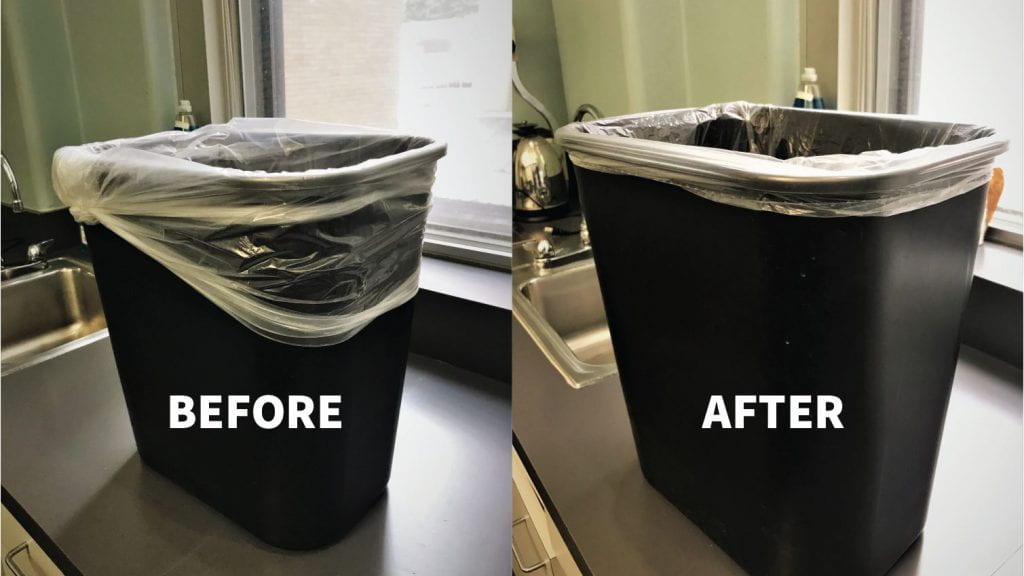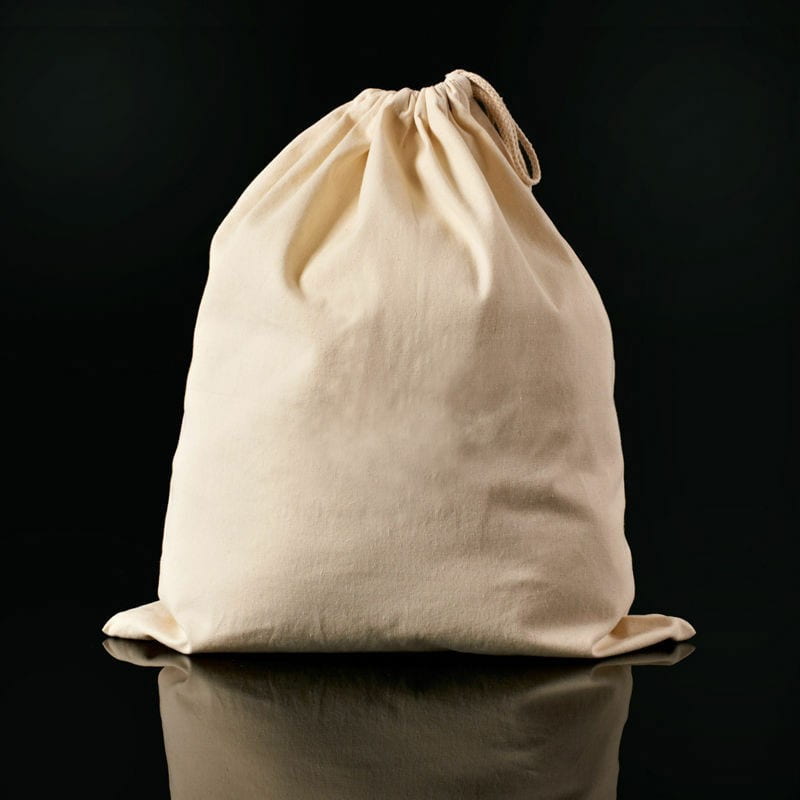Reducing plastic use is a critical step to decreasing both waste and greenhouse gas emissions. The custodial department at the WashU School of Medicine has taken this idea and ran with it by reducing their dependency on plastic throughout their daily operations. What started as an initiative to find plastic liners that actually fit the trashcans (“right-fit bags”) has snowballed into a remarkable effort that reduces unnecessary plastic use dramatically.

By simply making the switch to right-fit liners for the tall office suite cans and restroom trash cans, the WashU School of Medicine has reduced plastic liner material by 30,000 pounds a year and saved $15,000!*
These incredible savings have prompted our custodial operations leadership to refine other liners used on campus. The bag manufacturer is actively working with WUSM to create, trial, and test bags in various trash cans, representing true organizational change from both WUSM and that particular manufacturer.
Additional changes in the pipeline
Canvas totes for laundry collection
After the success of right-fit liners, the custodial supervisors began to assess their daily operations and identify other opportunities to reduce single-use plastic while reducing operational costs.
The next opportunity identified relates to the laundry collection process. At the end of each shift, a custodian has a load of soiled microfiber towels and used mops that needs to be collected and transported to the laundry facility on campus. Historically, the soiled supplies have been collected in plastic trash bags for safe and organized transfer, but this method was not only inefficient financially, but it also resulted in nearly 1,000 plastic bags being wasted on a weekly basis.

Going forward, custodial operations will be purchasing sets of washable/reusable laundry bags for each custodian to collect their soiled supplies at the end of each shift. The reusable canvas totes can then be laundered with the other materials. This new process eliminates the need for plastic bags in laundry collection. As this change will take a significant investment, the switch will take place with one supervisor’s team each quarter, with an estimated campus-wide roll out by mid-FY22.
Recycling-readiness of cleaning containers
When plastic must be used, it is preferred to use plastic types that can be recycled (#6 plastic cannot be recycled) and make sure they are clean before placing it in the blue bin. Following that principle, custodial services is always striving to ensure that all cleaning chemical packaging that is recyclable gets recycled.
While a good portion of the cleaners used on the WUSM campus are green-certified, almost all arrive on campus in a plastic container, even if purchased in bulk. Historically many of these containers are not recycled due to the remaining chemical residue inside the bottles. As a result, supervisors train their custodians to carefully read the label to determine if the container can be recycled by simply washing out the remaining contents – some bottles must be washed 3 times to eliminate all residue before recycling.
To take this approach to the next level, leadership will develop a “Quick List” of container types identifying if they can be recycled and the process to ensure the container is recycle-ready. By doing this, the custodians hope to capture a missed opportunity to divert some of our plastic waste to recycling.
This article was written by Alicia Hubert, Sustainability Coordinator at WUSM, and Mario Turner, Director of Facility Operations Custodial Services
*A similar approach to “right-fit” bags is underway at the Danforth Campus.